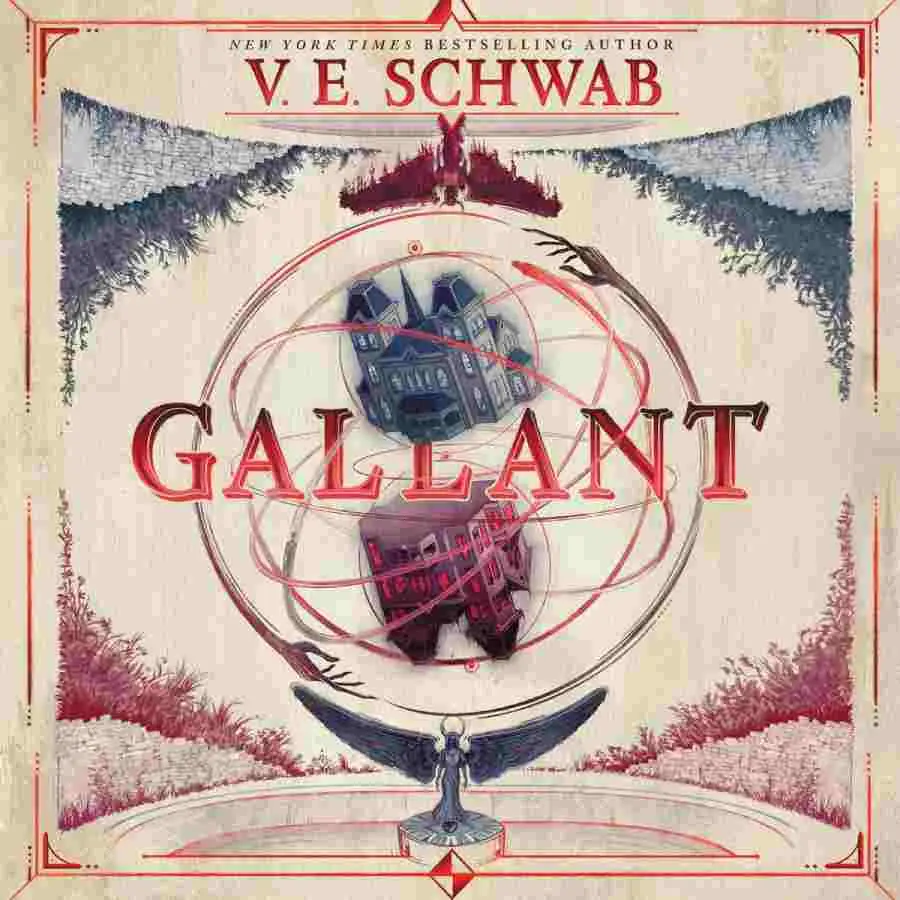

Every now and then, a book comes along that captivates you from the start and forces you to lose yourself inside its pages. “Gallant” by V.E. Schwab is one of those novels for me. Before I begin, I should point you that this is not my first literary experience. I’ve read innumerable novels, and this is not my first nor my final book review. My bookshelf has seen its fair share of marvels, including Neil Gaiman’s captivating, time-bending stories and Shirley Jackson’s eerily absorbing realms. But “Gallant” sticks out not because it was my favorite, but because of how it subtly, almost surreptitiously, entwined itself with my mind.
Why I Purchased “Gallant”
I discovered “Gallant” while looking for anything to rekindle the feeling of wonder and uncanny fascination I had with earlier books such as “The Secret Garden” and “Neverwhere.” The description piqued my interest—a gothic, spooky story with a strong female protagonist. V.E. Schwab, author of “The Invisible Life of Addie LaRue” and “A Darker Shade of Magic,” promises a distinctive combination of atmospheric horror and exquisite narrative. How could I resist?
A Brief Overview of “Gallant”
“Gallant” by V.E. Schwab is a stand-alone book that flawlessly mixes the gothic horror sensibilities of Shirley Jackson with the dark whimsy of Neil Gaiman. It’s a narrative of shadows and secrets, and the line between life and death is razor-thin. Olivia Prior, the heroine, is a mute orphan who sees ghouls, ghostly remains that harass her despite their inability to talk. Olivia was raised in the austere Merilance School for Girls, and her only connection to her past is her mother’s enigmatic notebook.
The book, replete with increasingly bizarre notes, urges Olivia to avoid Gallant, which her mother characterizes as both a shelter and a threat. However, when Olivia gets a letter inviting her to Gallant, her curiosity and yearning to find a place to belong trump the dire warnings.
Plot Summary (with Spoilers)
Olivia’s quest to Gallant is about self-discovery as much as solving her family’s riddles. When she arrives at the dilapidated mansion, she discovers that no one had expecting her. Her cousin Matthew, the only surviving Prior, is openly antagonistic and wants her to leave. The house itself is ominous, with deteriorating walls, overgrown grounds, and shadows that seem to move just beyond sight.
Gallant is a spot where the reality and its shadow collide—a parallel version of the estate resides on the other side of a destroyed wall in the garden. This other universe is governed by a mysterious entity known only as the Master of the House, who desires to enter the living world. As Olivia looks further into Gallant’s and her family’s past, she realizes that she is the last of a long series of Priors entrusted with preserving the planet from the looming darkness.
The climax of the story is Olivia’s encounter with the Master of the House. She discovers that her father was tempted by the power of this shadow world, and that it was this darkness that finally drove her mother insane and caused her father to vanish. Olivia must decide whether she will accept her duty as the living world’s defender or succumb to the attractions of the shadow realm, like her father did before her.
Character analysis
Olivia Prior is a fascinating heroine. As a silent orphan, she lives in a world that mostly ignores or misunderstands her. Her muteness is more than simply a physical characteristic; it represents her seclusion and the mysteries that surround her. Olivia’s ability to see ghouls adds depth to her character by emphasizing her link to death and the past. Despite her weaknesses, she is persistent and resourceful, qualities that will help her find the truth about her family and Gallant.
Olivia’s cousin, Matthew Prior, is a figure steeped in pain and bitterness. His anger against Olivia derives from a profound dread of what happened to his parents and a wish to protect her from the same destiny. Matthew and Olivia have a dynamic relationship, defined by friction as well as an underlying feeling of kinship.
The Master of the House personifies the shadow world, representing the alluring and destructive aspect of the darkness that hangs above Gallant. He is both a tangible and symbolic expression of Olivia’s peril, making him an engaging and dangerous enemy.
Themes and Comparisons
“Gallant” delves into a variety of subjects, the most prominent of which being the concepts of belonging and familial history. Olivia’s trip is motivated by her desire to find a place where she is wanted and feels at home. Gallant, however, is not the haven she had hoped for. Instead, it is a land of mystery and shadows, where the past threatens to engulf the present.
Another important topic is the dichotomy of light and darkness, life and death. Gallant is a mansion that exists between the living and shadow worlds, similar like Olivia, who can see both the living and the dead. This dichotomy is evocative of Neil Gaiman’s universes, in which the supernatural and banal live in a delicate equilibrium.
In many aspects, “Gallant” is similar to Gaiman’s book “Neverwhere,” which similarly involves a protagonist who discovers a secret world alongside our own. Both stories investigate the concept of a parallel universe that is darker and more frightening than the one we know. However, if “Neverwhere” is more of an adventure, “Gallant” is a calmer, more contemplative story that concentrates on the protagonists’ inner issues.
What Worked and Didn’t
V.E. Schwab is an expert at creating an ambient scene. Gallant’s universe is wonderfully drawn, with a pervasive feeling of decay and doom on every page. The descriptions of the house and its surroundings conjure dread, making it an ideal setting for a gothic story.
Olivia is a well-developed character, and her muteness is handled sensitively and effectively. Schwab does a wonderful job of expressing Olivia’s thoughts and feelings without using conversation, letting readers to connect with her on a deeper level.
However, some readers may find the novel’s pace to be inconsistent. The first half of the novel moves slowly, with most of the emphasis on developing the mystery and mood. While this contributes to the novel’s unsettling atmosphere, it also means that it takes some time to get started. The third act, in contrast, seems hurried, with the conclusion occurring shortly after the primary conflict is established.
Another source of disagreement might be the plot’s simplicity. While the work has a wonderful atmosphere, the plot is quite basic. Some readers may find this refreshing, while others may believe it lacks the intricacy and depth of Schwab’s other books, such as “The Invisible Life of Addie LaRue.”
Last Thoughts
“Gallant” is a disturbing and brilliantly written tale that will appeal to readers of gothic literature and dark fantasy. While not the most action-packed or intricate plot, it succeeds at generating a mood and atmosphere that lasts long after the last page is flipped. Schwab’s style is descriptive, and her characters, notably Olivia, are unforgettable, standing out as a distinct and engaging protagonist.
For those who appreciate novels like “The Secret Garden” or “Neverwhere,” “Gallant” provides a similar combination of mystery, fantasy, and reflection. It’s a calm, haunting story about the shadows that lurk in our world and emotions. While it may not be for everyone, those who like a slow-burning, atmospheric book will find something to enjoy in “Gallant.”
As for me, this will not be the last time I read a novel by V.E. Schwab. While “Gallant” was not the best book I’ve ever read, it was an unforgettable experience. Isn’t this what we all seek for in a good book?


